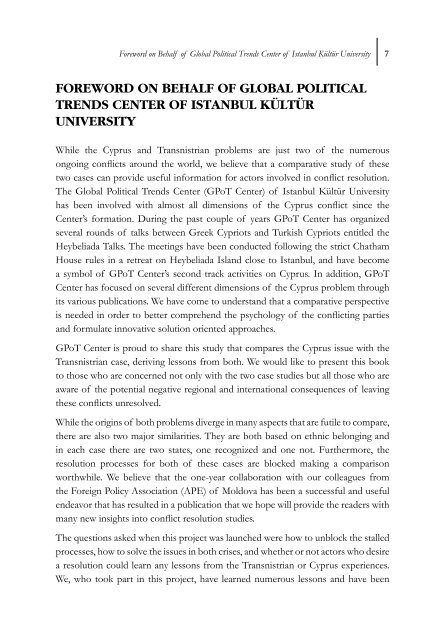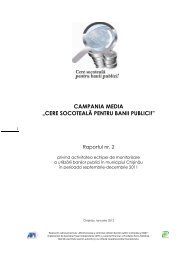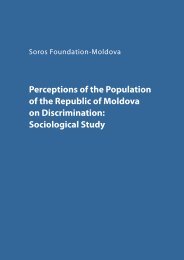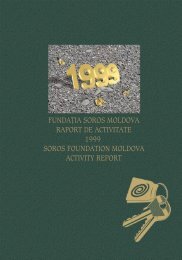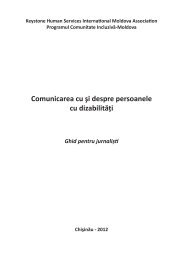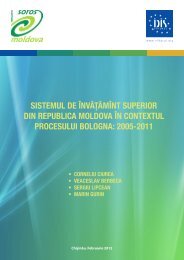Managing Intractable Conflicts: Lessons from Moldova and Cyprus
Managing Intractable Conflicts: Lessons from Moldova and Cyprus
Managing Intractable Conflicts: Lessons from Moldova and Cyprus
Create successful ePaper yourself
Turn your PDF publications into a flip-book with our unique Google optimized e-Paper software.
Foreword on Behalf of Global Political Trends Center of Istanbul Kültür University<br />
7<br />
FOREWORD ON BEHALF OF GLOBAL POLITICAL<br />
TRENDS CENTER OF ISTANBUL KÜLTÜR<br />
UNIVERSITY<br />
While the <strong>Cyprus</strong> <strong>and</strong> Transnistrian problems are just two of the numerous<br />
ongoing conflicts around the world, we believe that a comparative study of these<br />
two cases can provide useful information for actors involved in conflict resolution.<br />
The Global Political Trends Center (GPoT Center) of Istanbul Kültür University<br />
has been involved with almost all dimensions of the <strong>Cyprus</strong> conflict since the<br />
Center’s formation. During the past couple of years GPoT Center has organized<br />
several rounds of talks between Greek Cypriots <strong>and</strong> Turkish Cypriots entitled the<br />
Heybeliada Talks. The meetings have been conducted following the strict Chatham<br />
House rules in a retreat on Heybeliada Isl<strong>and</strong> close to Istanbul, <strong>and</strong> have become<br />
a symbol of GPoT Center’s second track activities on <strong>Cyprus</strong>. In addition, GPoT<br />
Center has focused on several different dimensions of the <strong>Cyprus</strong> problem through<br />
its various publications. We have come to underst<strong>and</strong> that a comparative perspective<br />
is needed in order to better comprehend the psychology of the conflicting parties<br />
<strong>and</strong> formulate innovative solution oriented approaches.<br />
GPoT Center is proud to share this study that compares the <strong>Cyprus</strong> issue with the<br />
Transnistrian case, deriving lessons <strong>from</strong> both. We would like to present this book<br />
to those who are concerned not only with the two case studies but all those who are<br />
aware of the potential negative regional <strong>and</strong> international consequences of leaving<br />
these conflicts unresolved.<br />
While the origins of both problems diverge in many aspects that are futile to compare,<br />
there are also two major similarities. They are both based on ethnic belonging <strong>and</strong><br />
in each case there are two states, one recognized <strong>and</strong> one not. Furthermore, the<br />
resolution processes for both of these cases are blocked making a comparison<br />
worthwhile. We believe that the one-year collaboration with our colleagues <strong>from</strong><br />
the Foreign Policy Association (APE) of <strong>Moldova</strong> has been a successful <strong>and</strong> useful<br />
endeavor that has resulted in a publication that we hope will provide the readers with<br />
many new insights into conflict resolution studies.<br />
The questions asked when this project was launched were how to unblock the stalled<br />
processes, how to solve the issues in both crises, <strong>and</strong> whether or not actors who desire<br />
a resolution could learn any lessons <strong>from</strong> the Transnistrian or <strong>Cyprus</strong> experiences.<br />
We, who took part in this project, have learned numerous lessons <strong>and</strong> have been


